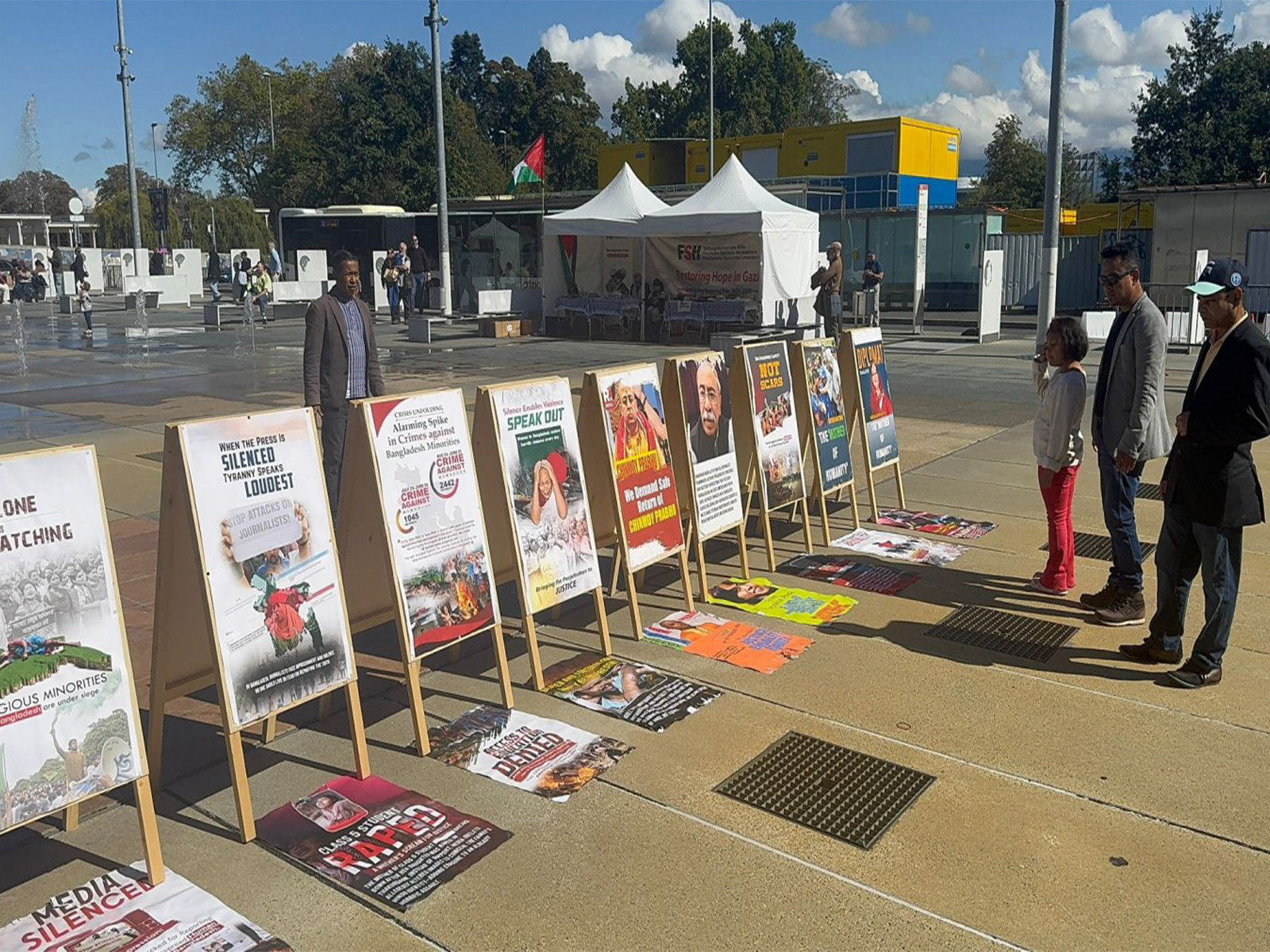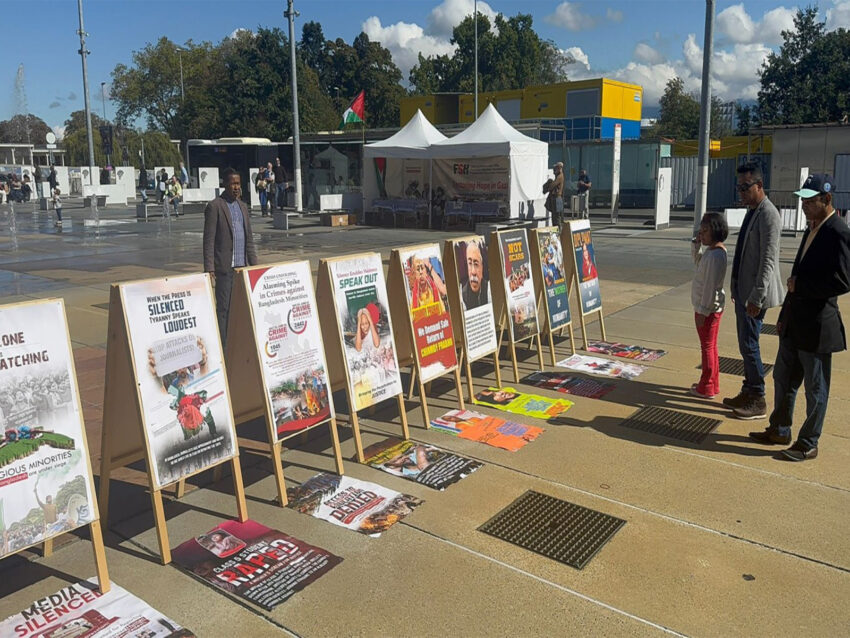
Geneva [Switzerland] September 27 (ANI) The Geneva-based rights group International Forum for Secular Bangladesh (IFSB) organised a striking poster exhibition in Geneva, which has brought global attention to the escalating rise of radical fundamentalism and widespread human rights violations in Bangladesh under the current Yunus regime.
The two-day exhibition, held on September 26-27 during the 60th session of the United Nations Human Rights Commision.
Human rights activist Rahman Khalilur Mamun led the initiative, aiming to draw international awareness to what he described as Bangladesh’s “rapid slide into terror and repression.” A total of 30 posters, divided into five categories, were displayed between 9 am and 6 pm each day.
These categories included: Rise of radical Islamic fundamentalism, communal violence and minority oppression, suppression of press freedom and persecution of journalists, mob terrorism and sexual violence against women and children and Sheikh Hasina, World Conscience: Mother of Humani. The exhibition attracted a large audience, including diplomats, NGO representatives, and human rights activists from around the world. Many expressed shock and sorrow after viewing graphic depictions of violence.
Cameroonian activist Chonghi Joseph went emotional after witnessing images of sexual violence against women, and remarked, “I have lost the language to express my feelings. Such barbaric torture mirrors the horrors of the Middle Ages. Yunus has tarnished the Nobel Peace Prize by allowing such atrocities to continue.”
Several diplomats and observers raised concerns that Bangladesh is rapidly heading toward instability. They warned that under the Yunus administration, the country risks becoming a failed state marked by extremist violence and civil conflict.
The growing frustration among Bangladeshis, particularly on social media, where ordinary citizens are voicing regret over the current state of affairs. Posts declaring “We were better before” suggest nostalgia for the tenure of former Prime Minister Sheikh Hasina, now in political exile in India. The exhibition highlighted a call for greater international solidarity to confront Bangladesh’s worsening human rights crisis and the rise of radicalisation threatening regional stability. (ANI)


